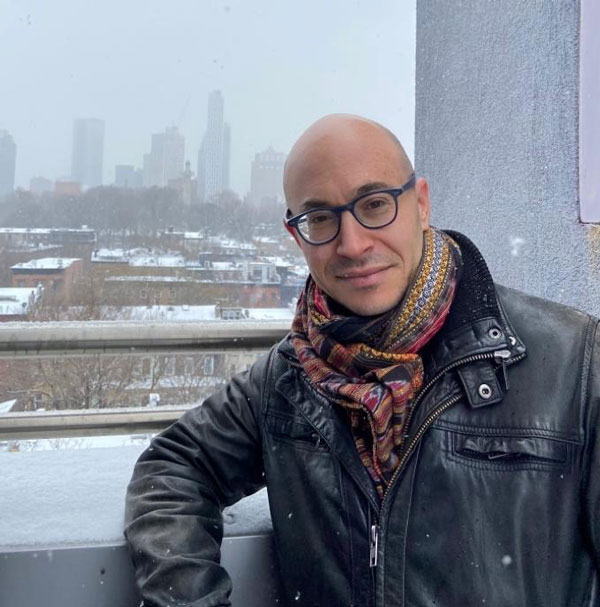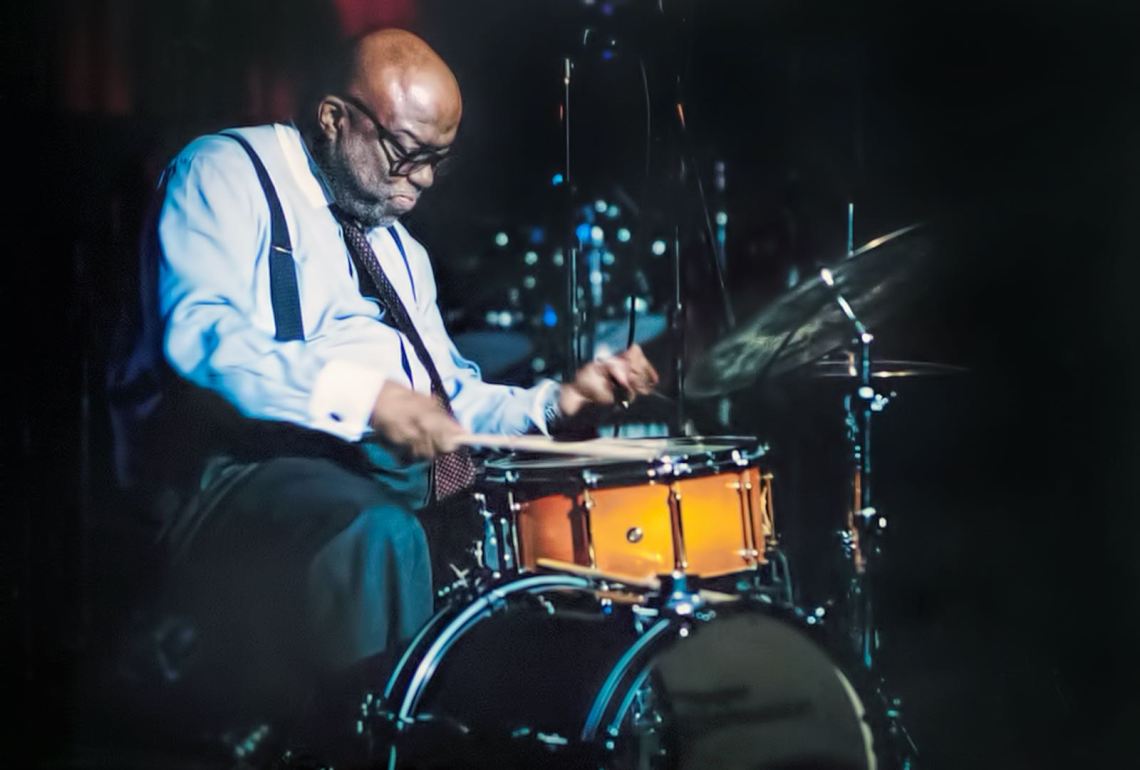On September 24, 2020, we published Adam Shatz’s “The Stanley Crouch I Knew,” a remembrance of his friend, the author, critic, and co-founder of Jazz at Lincoln Center, who died earlier this month. They met at the height of the sparring public intellectual’s fame—Crouch the “embodiment of a doctrinaire, traditionalist jazz establishment that was hostile to the avant-garde musicians I admired,” Shatz writes. Their friendship, born of a shared—if sometimes clashing—love of the music, was fed by Crouch’s talent for gossip and juicy stories about the musicians he knew and the jazz world he inhabited, and expanded to include other shared passions, such as cinema, painting, and literature.
“Stanley didn’t try to indoctrinate the younger writers he mentored,” Shatz told me by email. “If he recognized something in you that he respected, he encouraged you to be yourself—and, above all, to put in the time and do the work. Stanley had the gift of making you feel as if your going to the Vanguard and writing about jazz were as important as the music being created.”
Shatz, a prolific writer and contributing editor for the London Review of Books, is also a contributor to The New York Review, The New Yorker, and The New York Times Magazine, and in addition to writing extensively on music has reported from Algeria, Palestine, Lebanon, and Egypt. But back when he met Crouch, he was a few years out of college, just getting started as a freelance jazz critic—“Baby Shatz,” Crouch called him.
Still, Shatz’s ear had long been in training. “I have the great fortune of coming from a family that valued, even worshipped music,” he said, “and not just jazz. My mother helped to run a community music school in Springfield, Massachusetts, for disadvantaged children. My sister is a very fine amateur pianist, and from an early age played Beethoven, Chopin, and Debussy. I was a terrible violist, and eventually quit. But my introduction to jazz came through my father, who heard Coltrane, Miles, Monk, John Lewis, and many other jazz legends in concert, in clubs in New York and Boston. He had a marvelous collection of LPs.
“At twelve I heard three albums that changed my life,” he went on. “Coltrane’s My Favorite Things, Monk’s 1957 solo album Thelonious Himself, and Davis’s Kind of Blue.” He was captivated, and began to educate himself, discovering Cecil Taylor’s Silent Tongues and the Art Ensemble of Chicago’s Fanfare for the Warriors, both of which “revealed how capacious and mind-expanding this music could be.”
His early taste was not limited to jazz—his babysitters, three daughters of a neighboring black family, turned him on to Prince, Michael Jackson, the Commodores, the DeBarge family, Shalamar, Marvin Gaye, Sly and the Family Stone, James Brown, and Aretha Franklin. “I became increasingly aware, thanks to these remarkable women, and thanks to my father, of the connections between jazz, black popular music, and the history of civil rights and the black freedom struggle,” he told me. “This was music that not only moved you, it carried deeper historical meanings and hopes. Stendahl says somewhere that great art provides a promesse de bonheur, a promise of happiness. But black music provided something much heavier, a promise of freedom. Still unrealized, of course—but that’s no fault of the music.”
Jazz has been known historically as one of few areas in American culture where collaboration between black and white artists has been the norm. Women, however, have been less welcome, as Shatz acknowledged. “But that is changing,” he said, “partly under the impact of #MeToo, and thanks in large part to the work and advocacy of brilliant musicians such as Kris Davis, Nicole Mitchell, Fay Victor, Esperanza Spalding, and Terri Lyne Carrington, all of whom should be on your playlist!” And while “the equality in jazz is of course something to celebrate, let’s not sentimentalize it,” he said. “Music can scarcely be insulated from the overwhelming force of racism that has disfigured American life.
“As for critics, there’s no getting around the fact that for the most part, the musicians have been black and the critics white,” he said. “There have been superbwhite critics: Martin Williams, Gunther Schuller, André Hodeir, Whitney Balliett, Nat Hentoff, Gary Giddins, Ben Ratliff. In a class of her own is the British jazz writer Val Wilmer. And then there’s a long paper trail of white critics getting it wrong—or patronizingly telling musicians what they ought to be doing. That’s why critics like LeRoi Jones/Amiri Baraka, A.B. Spellman, and later Stanley Crouch and Greg Tate (a Baraka disciple who writes brilliantly on every form of black music under the sun) were so important. They introduced a black voice and sensibility to a field where it was desperately needed, and, by situating jazz in the lived experience of black people, shed a powerful light on the music’s creation. These critics strongly shaped my thinking.”
Advertisement
Writing about Crouch, Shatz does not shy from the controversy and contradictions that he embraced. Drawn to a developing black nationalism and the Black Arts Movement following the 1965 Watts uprising in Los Angeles, Crouch would later come to have reservations about what he called a “tribal” impulse. In this turn, he identified more strongly with Ralph Ellison’s account of black American history and cultural expression, his understanding of black Americans as having a claim to the country they’d created. Crouch gained a reputation as a black conservative in the 1980s for his attacks on black intellectuals and artists “who trafficked, as he saw it, in victimology,” Shatz writes (of Crouch’s sometimes reactionary Daily News columns, Shatz said, “Look, Stanley could be a hack as well as a serious intellectual. They don’t bear close reading.”). But Shatz sees in Crouch’s earlier intellectual evolution an Ellisonian—and Ellingtonian—“insistence on the pervasive, albeit suppressed, influence, of black culture in America,” a self-knowing claim to authentic Americanness as an answer to the country’s racist denials.
Central to recent protests against police violence and systemic racism is the undeniable fact that the material consequences of oppression continue, and continue compounding. The pandemic has revealed and exacerbated the country’s racialized injustices and the government’s failures to address them. I wondered what Shatz thought Crouch would say about this moment.
“I think Stanley would have been depressed by the uniformity of liberal discourse on the subject of race and racism. I didn’t speak to Stanley during the protests,” he said, “but I suspect he would have welcomed them in some ways—the greater participation of whites and non-black minorities certainly marked a shift of some significance—while also finding other aspects faintly risible. I’m thinking here of scenes of white liberal self-flagellation, such as that moment when white demonstrators washed the feet of the black demonstrators, in a show of contrition. ‘That’s some bullshit,’ I can almost hear him saying. He certainly didn’t need some white person to clean his feet.”



